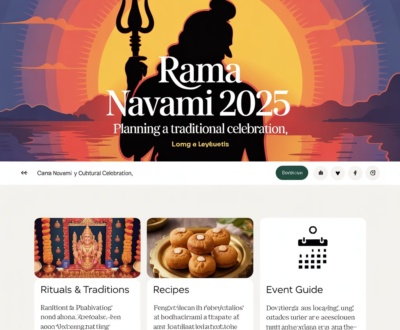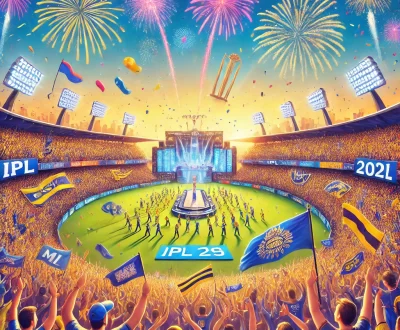
Stepping into the world of event management can be both exciting and daunting. Planning your first event requires a blend of creativity, organizational skills, and strategic thinking. Whether it’s a corporate gathering, wedding, or community event, a successful event leaves a lasting impression on attendees and builds your reputation as a capable planner. Here’s a comprehensive guide to help you navigate your first event with confidence.
- Define the Event’s Purpose and Objectives
Every event needs a clear purpose. Start by answering these fundamental questions:
What is the event’s primary goal? (e.g., networking, celebration, education, fundraising)
Who is the target audience?
What message or experience should attendees take away?
Clear objectives serve as the foundation for decision-making throughout the planning process.
- Understand the Client’s Vision
If you’re organizing an event for a client, ensure you fully understand their vision. Schedule a detailed meeting to discuss their expectations, preferences, and goals. Create a mood board or event concept document to confirm alignment.
Key Discussion Points:
Event theme and style
Desired guest experience
Preferred vendors or suppliers
- Set a Realistic Budget
A well-planned budget is crucial for event success. Break down costs into categories like venue, catering, decor, entertainment, and marketing.
Tips for Budgeting:
Allocate extra funds for unexpected expenses.
Request detailed quotes from vendors.
Track expenses using budgeting software.
- Choose the Right Venue
The venue plays a significant role in setting the event’s tone. When selecting a venue, consider:
Capacity and layout
Accessibility and parking
Available amenities (e.g., Wi-Fi, AV equipment)
Ambiance and alignment with the event theme
Visit potential venues in person to assess their suitability.
- Create a Detailed Event Plan
An event plan should outline every aspect of the event, from setup to teardown.
Key Components:
Event timeline with milestones
List of tasks with assigned responsibilities
Vendor and supplier contact details
Contingency plans for potential issues
Use tools like Trello, Asana, or Eventbrite to stay organized.
- Assemble a Reliable Team
Event planning requires teamwork. Identify reliable individuals or hire staff for tasks like setup, guest assistance, and technical support.
Team Roles:
Event coordinator
Logistics manager
Marketing and communications lead
On-site support staff
Conduct regular meetings to ensure everyone understands their responsibilities.
- Vendor Selection and Coordination
Vendors contribute significantly to the event’s success. Research potential vendors for catering, entertainment, decor, and equipment.
Tips for Working with Vendors:
Get recommendations and read reviews.
Compare quotes and services.
Communicate requirements clearly.
Confirm bookings in writing.
Establish a positive relationship with vendors for potential future collaborations.
- Develop a Marketing and Promotion Strategy
Promotion is essential for attracting attendees, especially for public events.
Marketing Channels:
Social media platforms (Facebook, Instagram, LinkedIn, Twitter)
Event-specific websites (e.g., Eventbrite, Meetup)
Email newsletters
Flyers, posters, and local partnerships
Create engaging content like teasers, behind-the-scenes footage, and countdown posts. Use event-specific hashtags to generate buzz.
- Focus on Guest Experience
A positive guest experience ensures attendees leave with good memories.
Key Experience Elements:
Warm and efficient registration process
Interactive activities or entertainment
Comfortable seating and clear signage
High-quality food and beverages
Consider adding personalized touches, such as custom name tags or welcome gifts.
- Incorporate Technology for Efficiency
Technology streamlines event management and enhances guest engagement.
Useful Tools:
Event management software for planning and coordination
Online registration platforms for easy sign-ups
Mobile apps for event schedules and notifications
Live streaming for virtual participation
Test all equipment and digital tools before the event to avoid technical glitches.
- Prepare for Contingencies
Unexpected challenges can arise during any event. Create contingency plans for potential issues like:
Weather disruptions for outdoor events
Technical malfunctions (e.g., microphones, projectors)
Vendor cancellations
Medical emergencies
Assign specific team members to handle crises and ensure first aid resources are available.
- Conduct a Final Walkthrough
A few days before the event, conduct a comprehensive walkthrough with your team.
Checklist for Walkthrough:
Venue layout and decorations
Equipment functionality
Staff roles and responsibilities
Guest flow and seating arrangements
Address any concerns promptly to ensure readiness.
- Execute the Event with Confidence
On the event day, maintain a calm and organized demeanor.
Day-of Event Tips:
Arrive early for setup and troubleshooting
Keep communication lines open with staff and vendors
Monitor guest experience and address issues proactively
Document the event through photos and videos
Stay flexible and solution-oriented throughout the event.
- Gather Feedback and Evaluate Success
After the event, gather feedback to evaluate its success and identify areas for improvement.
Methods for Feedback Collection:
Post-event surveys (online or in-person)
Social media polls and comments
Direct conversations with guests and vendors
Analyze the feedback and document lessons learned for future events.
- Celebrate Your Success
Celebrate the successful execution of your first event with your team. Recognize individual contributions and reflect on the skills you’ve developed. This milestone marks the beginning of your journey in the dynamic world of event management.
Conclusion
Planning your first event may seem overwhelming, but with careful preparation, attention to detail, and a positive attitude, you can create a successful and memorable event. Each event you plan will build your confidence, skills, and reputation in the industry. Embrace the challenges, learn from the experience, and continue striving for excellence in your event management career.
Subscribe to our newsletter!
More from our blog
See all postsRecent Posts
- How Indian Families Celebrate Anniversaries in Style May 28, 2025
- Rama Navami 2025: Planning a Traditional Celebration April 7, 2025
- Event Management of Maha Kumbh Mela 2025: A Grand Organizational Marvel March 26, 2025









Pingback: Memorable event experience - Liferecall
Pingback: Event manager daily routine - Liferecall